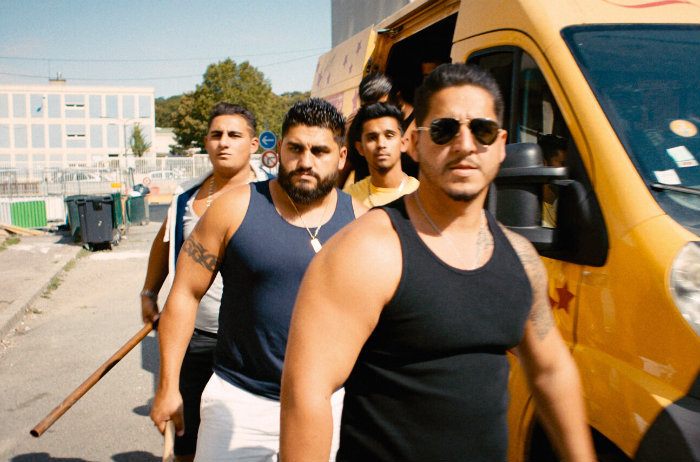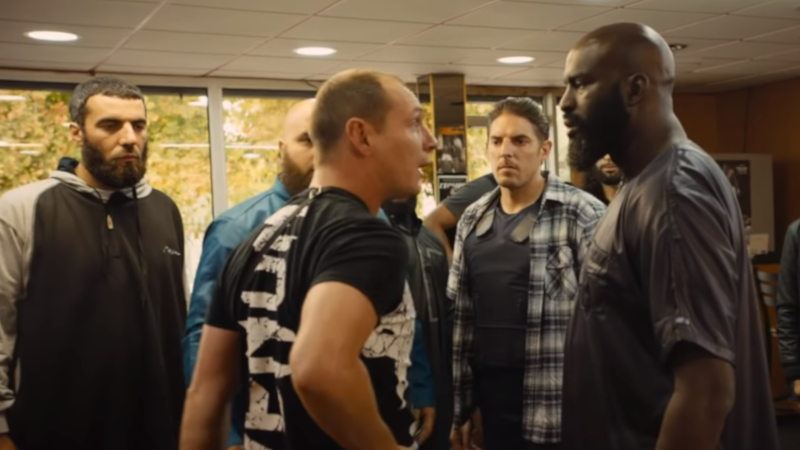The Oscars’ limit of only one submission per country in the category of Best International Feature Film has long been derided as evidence of the U.S. film industry’s provincialism; as Hollywood films grow increasingly monolithic, conventional and corporatized, this deficiency only becomes more glaring. Technically, any film not nominated for Best International Feature can still campaign in other categories—so long as it’s released theatrically in Los Angeles within a certain timeframe—but Hollywood Oscar campaigns are so heavily stacked against non-English and non-U.S. films that any such attempt would almost certainly prove fruitless.
It’s ironic then that Ladj Ly’s Les Misérables, France’s official submission this year, is a film that directs our attention to systemic biases designed to pit people against each other, to the detriment of all.
As the first film by a black filmmaker to be chosen as France’s official selection for the Oscars, the movie holds extra significance in a country beset with crises experienced by disaffected and oppressed minority groups. Ly himself grew up in these conditions, which serve as the basis for his film. Ly has also made use of his experience as a documentary filmmaker depicting the lives of oppressed urban classes in Paris; his work also bears the clear cinematic influence of films like Mathieu Kassovitz’s La Haine. In a statement for Reuters, Ly said that the plight of the underclass became an international topic when the gilets jaunes (‘yellow vest’) protests started, but added that the youth of the banlieues where he grew up had been “yellow vests for more than 20 years.”

Les Misérables follows a few days in the lives of three cops in the Paris suburbs and, by way of films like Das Boot and All Quiet on the Western Front, positions its protagonists as cop and robber, chasing their own wayward tails and covering their own tracks. The three officers form a basic trigonal diagram of the kinds of cops commonly depicted in film: the abuser, the enabler, and the challenger. I use the term “abuser” for Chris (Alexis Manenti) instead of “loose cannon,” because Les Misérables is clear that Chris’s egotism isn’t grounded in a false sense of his own virtue or justice, like the central figures in Dirty Harry or Violent Cop. He is a fuckup in the manner of Harvey Keitel in Bad Lieutenant, exaggerating the authority of his badge and heedless of the obligations that come with it.
His enabler is his longtime partner Gwada (Djibril Zonga), who sets off a chain reaction of events after he shoots a black child with a riot gun during a confrontation. While the trio are quick to decide to frame the incident as a self-inflicted wound, they learn that another young boy has videotaped the whole incident with his drone camera. Gwada’s relationship to Chris is presented as a traditional ‘buddy cop’ role—the two have one another’s backs, but don’t keep each other in check.
A rookie named Stéphane (Damien Bonnard), as yet uncorrupted by his newfound power, takes the role of the challenger, crashing the established duo’s Lethal Weapon-like dynamic. Slowly, this outsider starts to realize he is in over his head. He too, we must understand, is guilty of enabling, if only because he is willingly working with the other two. His choices may mitigate violence and de-escalate tension, but they cannot and do not prevent the oppression and intimidation from happening.
In Chris’s maniacal screams of “I am the law!”—his declaration of the right to abuse and bully minority communities—Les Misérables can be considered as a philosophical sequel to Victor Hugo’s novel. But in place of the simplistic struggle between Hugo’s Valjean and Javert, Ly suggests that the choices made by individuals cannot be examined without reference to the social and political puppet-strings that are pulling them. Who defines, and thus controls justice? Significantly, and deliberately, the answer we’re looking for doesn’t exist within the confines of the movie.
Ly has openly asked that French President Emannuel Macron watch his film. Police violence in France goes largely unmentioned by political leaders, and it’s been said that Macron’s neoliberal policies have emboldened police during his tenure. Twenty-three people, including a truck driver named Patrice Phillipe [link warning: explicit images], claim to have been blinded in one eye by rubber bullets fired by police during the protests. Phillipe subsequently lost his job, which requires vision in both eyes. But Macron and his administration continue to deny any wrongdoing by officers.
Ly’s treatment of the police—giving a glimpse into their home lives and revealing them as husbands, fathers, sons—is not intended to “humanize” or to dispel our distaste for what they do, but rather to compel us to see them as bit players in a more nefarious web. Government officials never appear in this movie; the only major political figure is the mayor, an uncouth and corrupt individual standing in for his own mysterious superiors, and theirs.

The suburb of Paris that our trio of cops traverses is a chessboard of warring factions: the gypsies who run a circus, a group of Muslims led by Salah (Almamy Kanoute), who also owns a halaal sandwich shop, and the rough, sometimes combative kids of the neighborhood. As in the final confrontation between Javert and Jean Valjean, wherein Javert realizes the criminal he is pursuing is not the one-dimensional figure he had so deeply rooted in his mind, Les Misérables forces its characters to reckon with the preconceived notions they’d formed of each other.
By the end of the film, the tension between all of these people comes to a head, weapons drawn. Such is the game’s design—the pawns die first.






